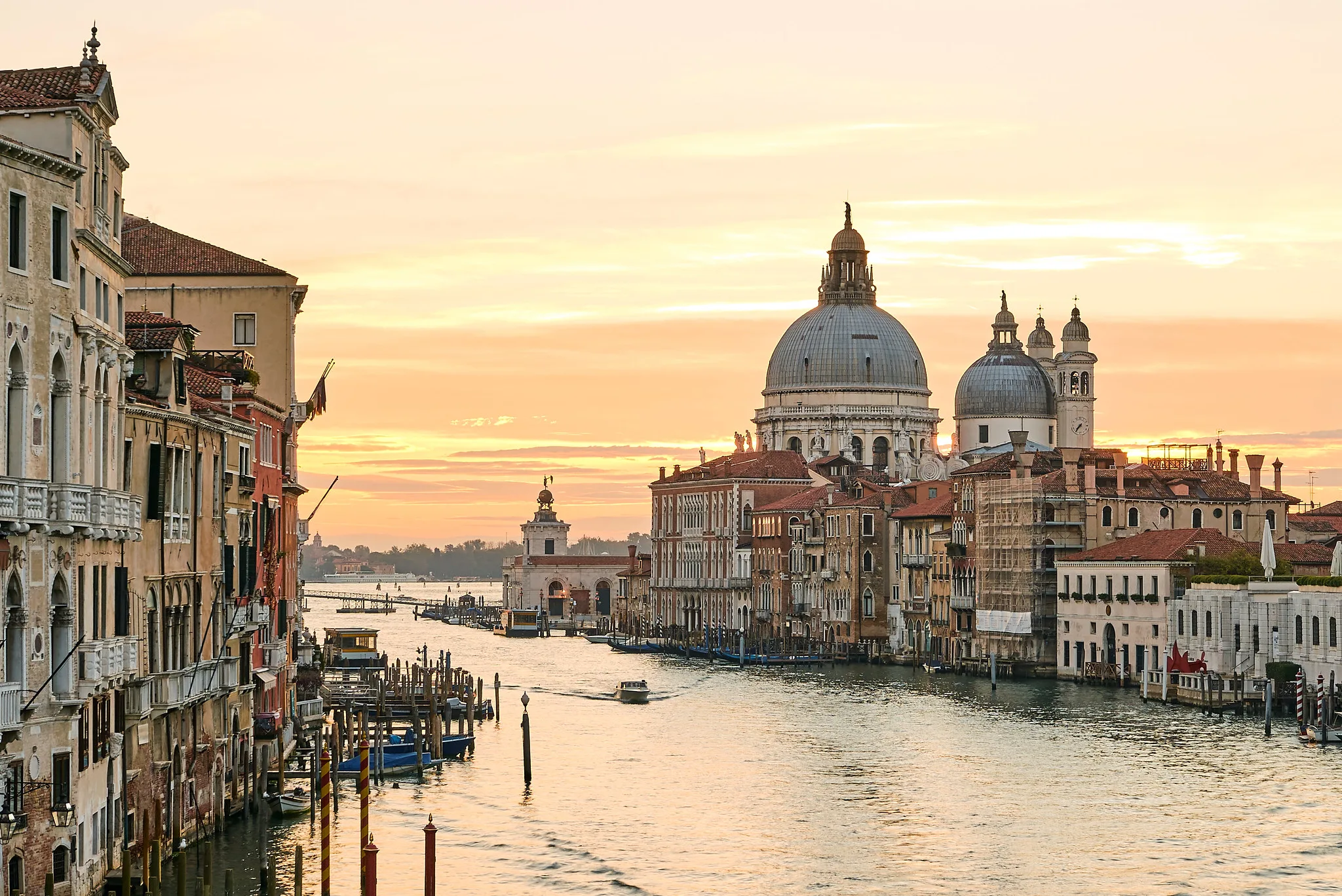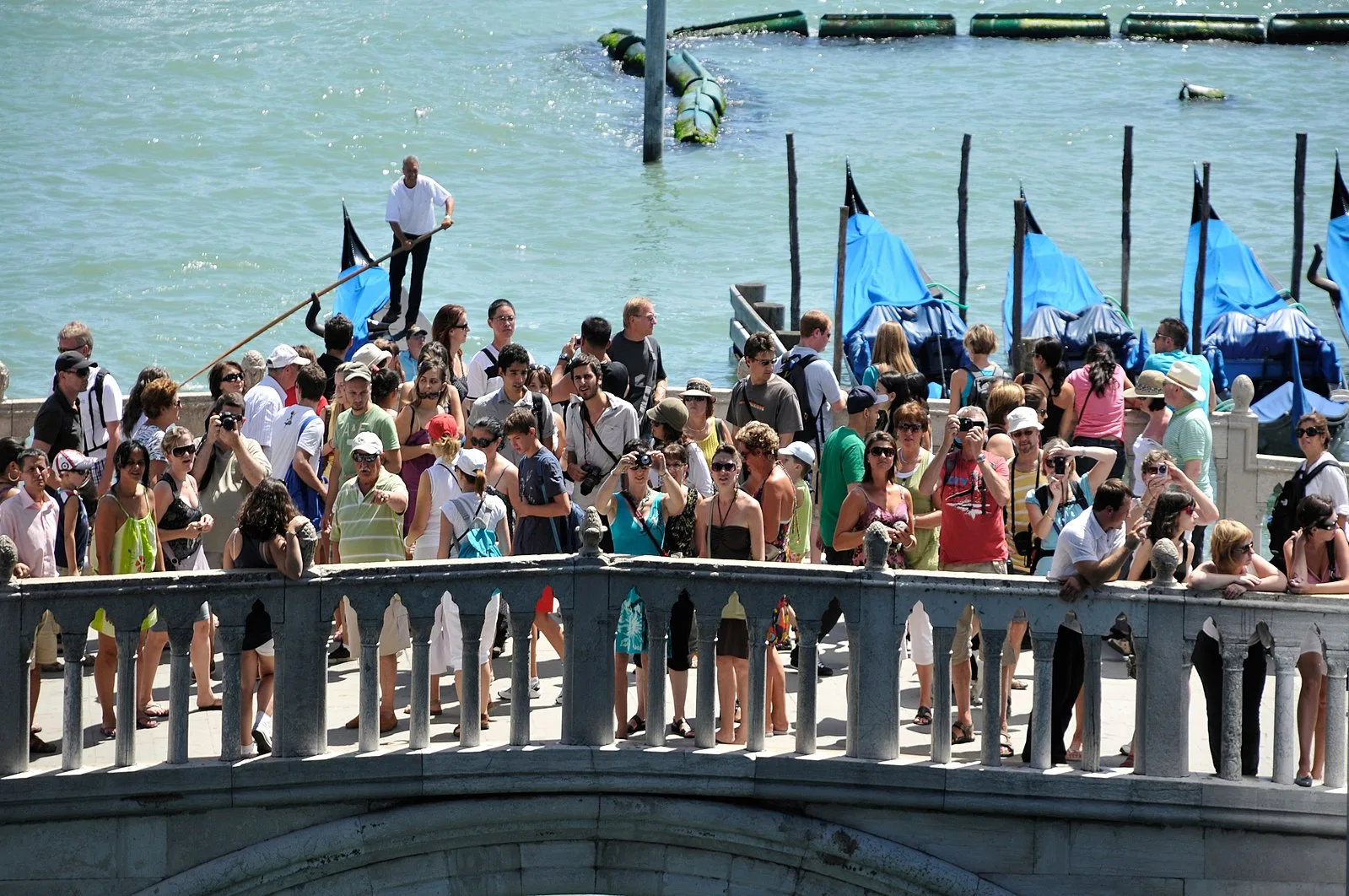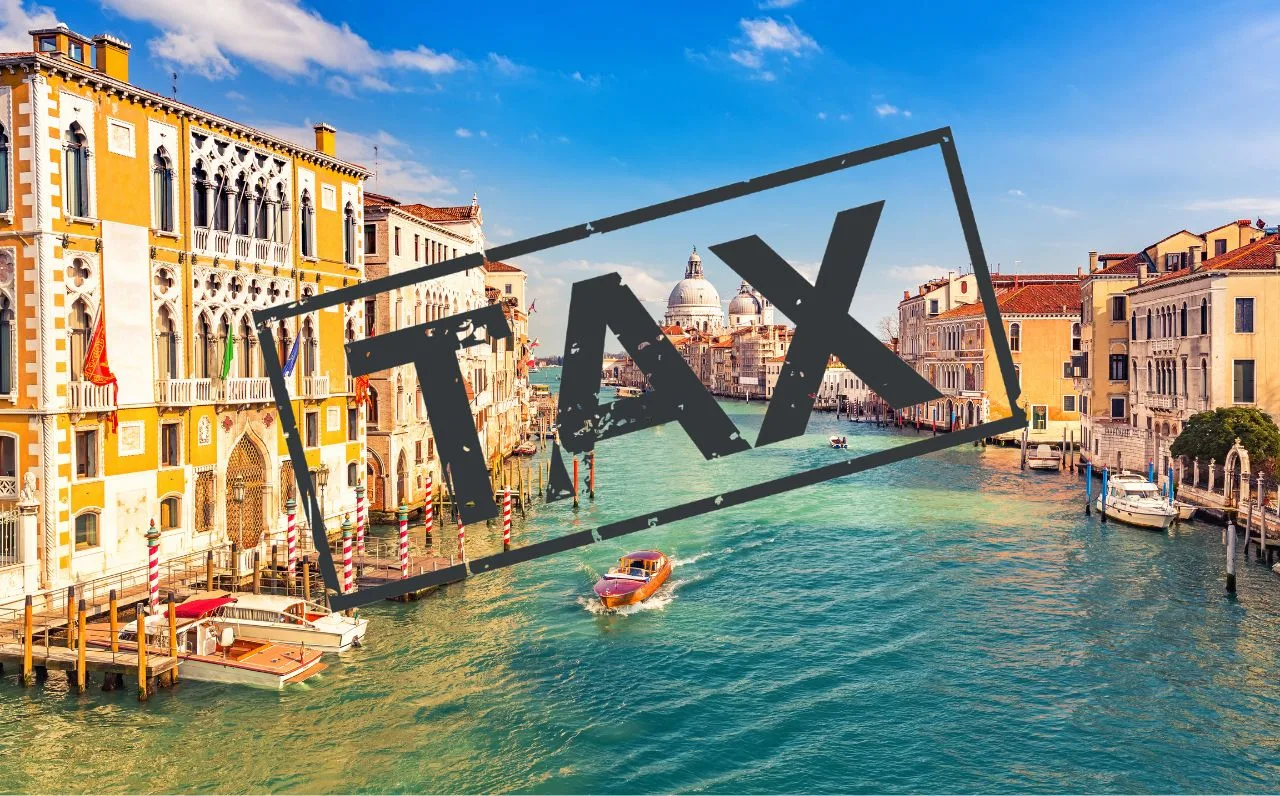On April 25 Venice implemented its experimental €5 tourist tax for day visitors. The tax is directed towards curbing the city’s over-tourism problem and projecting the World Heritage site. However, the residents of Venice are not happy with this new scheme.
€5 tourist tax
Last week the the city of Venice the first major tourist city started charging a €5 fee to its day-trippers. The fee is aimed at protecting the UNESCO World Heritage site from the effects of excessive tourism by deterring day-trippers and reclaiming the city for its locals.

The entrance fee only applies to the historic city centre of Venice. Tourists can pay the tax and buy tickets online before visiting the city. Upon payment, tourists will receive a QR code. They can also pay the tax on arrival. The tax will apply on 29 peak days, mostly weekends from April 25 to July 14 as part of the trial phase. The tax applies to day tourists; residents, commuters, students, overnight-staying tourists and children below 14 years are exempted from the fee.
Local stewards will carry out random checks at arrival points such as Santa Lucia train station. Defaulters will be charged €50 to €300 fine.
Venice council said the city collected €27,500 on the first day from 5,500 tourist bookings.
Residents criticise the scheme calling it a money-making gimmick
Several residents’ committees and associations held protests last Thursday, arguing that the tourist tax will do nothing to resolve the main issues of Venice.
Many residents accused the authorities of transforming Venice into a “theme park”. Matteo Secchi from Venessia.com, a residents’ activist group said, “I can tell you that almost the entire city is against it. You can’t impose an entrance fee to a city; all they’re doing is transforming it into a theme park. This is a bad image for Venice … I mean, are we joking?”
Mayor Luigi Brugnaro has defended the scheme by saying it is not a money-making initiative, he has promised to cut local taxes for residents if the scheme is successful.

Venice is at risk of sinking due to climate change like many other coastal cities around the world as well as challenged by the pressure of overtourism.
Federica Toninello, head of the ASC, housing association said the authorities haven’t understood the real problem of mass tourism in a fragile city like Venice. He said, “For a start, €5 will do nothing to deter people. But day-trippers aren’t the issue; things like the shortage of affordable housing are … What we need are policies to help residents, for example, making rules to limit things like Airbnb.”
The local branch of Arci, a cultural and social rights association, said that the fee would be “ineffective in containing mass tourism” while generating “unequal treatment between different categories of visitors”.
Another set of protestors on Thursday highlighted the concerns over the invasion of privacy as digital data of visitors will collected while paying the tax.
A petition on Instagram and Facebook titled “Free Venice from Ticket 2024: it’s a cultural battle” has gathered over 700 signatures from writers and academics. The petition argues that requiring payment to enter Venice marks a broader cultural decline and suggests that this change reflects not just a problem for Venice, but for Europe as a whole. The tax reinforces the idea that Venice a revenue-generating machine and not a living city.
Furthermore, many residents have pointed out that the scheme does not limit the number of tourists visiting the city. Some claim the tax was introduced largely to fob off UNESCO. Last year UNESCO cited its intention to put Venice on its World Heritage in Danger list. This was the second time it issued a warning to Venice.
Will other European cities follow soon?
Europe is famous for its historic cities, cultural quarters, and built heritage. It draws millions of tourists each year. With successful city branding campaigns for cities like Barcelona and Amsterdam, Europe promoted its heritage to the world. The continent saw a boom in cultural heritage tourism which over the decades has turned into mass tourism.
Cities are struggling to be living cities rather than tourist cities. Big cities like London have been able to manage increased tourism but most small cities like Venice and Amsterdam are struggling to keep up with tourist footfall.
A major challenge at hand for Europe is to conserve and manage its heritage while maintaining a robust economy.
In recent years, the struggle between residents and tourists has intensified. This has caused residents to move out of the city. AirBnBs have replaced the homes of residents in the city centre. Venice has seen the departure of over 120,000 of its residents since the 1950s.
European cities are looking for sustainable solutions for heritage tourism. Venice’s tax scheme is another attempt at finding one. However, it remains to be seen if this tourist tax scheme is successful and if other countries may follow suit soon. Furthermore, how will this impact the tourism industry of Europe?
